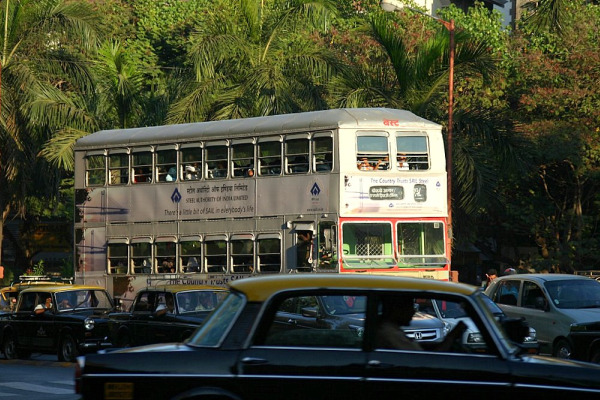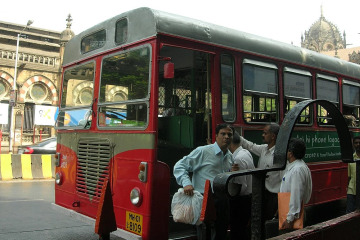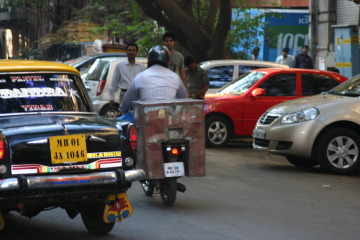
All photos by Neha Puntambekar
The corner chaiwala pours milky tea into a glass. The glass is filled just halfway – the portion is called cutting. Behind the cart a younger boy, he doesn’t look more than 11, is rinsing out used glasses. Next to them is a tobacco stall. Two yuppies, dressed in formal clothes, ties folded in their front pockets, stand with freshly lit cigarettes. Since single cigarettes are available for a rupee, or less, depending on the brand, corner smokers are a common sight. I walk past them and cross the road to the bus stop.

